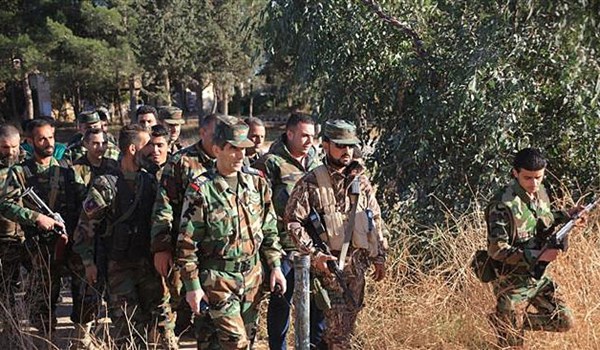
RNA - Unfortunately, and as always, the new ceasefire will amount to nothing, as many foreign-backed terrorist groups, including so-called “moderate” rebels, would be violating the deal despite having negotiated it in the first place.
Still, there are perfect reasons why the Syrian government and its main ally, Iran, have accepted the deal. They seek to establish Castello Road, leading into Aleppo, a “demilitarized zone” so that humanitarian aid could reach civilians in all districts of the city. They also want to establish similar humanitarian corridors elsewhere throughout the region. The ceasefire would at least give local populations relief from the daily mortar fire and get them much needed supplies.
That said, a big problem still persists. As like the February ceasefire, this one also explicitly excludes both ISIL and Al-Nusra Front. Nusra, now called Fatah al-Sham Front, controls parts of Aleppo and has forces in the surrounding area. They have no real incentive to stick by the demilitarized zone if they think they can capture the road for themselves.
Turkey’s addition to the situation in Syria, having invaded last month, also adds some complexity to the new ceasefire, though they too endorsed the deal. Since they have insisted in the past they don’t recognize any difference between ISIL and the Kurds, it is unclear if Turkey will feel itself at all constrained by the deal.
Similarly, Saudi-backed Ahrar al-Sham terrorist group also rejected the truce deal just hours before its implementation. The terrorist group claims that abiding by the truce would only "reinforce" the Syrian government. The group is a close affiliate of the Fatah al-Sham Front. Last May, the US blocked Russia’s bid at the UN to add Jeish al-Islam and Ahrar al-Sham to the list of terrorist groups because of their ties to Al-Qaeda and ISIL.
All told, the new truce deal is still good news for the people of Syria, as it raises hopes that future peace talks are actually going to have something to work with. Equally, it's bad news for Saudi Arabia and its blood-drenched coalition of the bullied, bought, and willing, who in serious violation of international protocols are still financing and arming various terrorist outfits in Syria.
Some five years into their regime-change efforts, however, things have changed and expectations that through terrorist proxies they could produce a total, uncontested military victory have dimmed. That explains why they also endorse the truce deal. And by that they don’t really mean peace.
Far from it, the colonial campaign to divide and rule Syria still tops the agenda for Washington and its client states. Just like in Iraq and Yemen, their key policy in the so-called Syria ceasefire is not to end the bloodshed and save the people. It’s just a shift in tactics. The regime changers want to attain through ceasefire what they couldn’t in the battlefield:
Occupy and divide Syria; degrade the Axis of Resistance (Iran, Syria and Hezbollah) through a combination of international pressure and internal dispute over the terms of ceasefire or any future peace accord; continue Special Forces operations and drone strikes; resupply rebel forces, and create no-fly-zone over the Syrian-Turkish border areas on the pretext of humanitarian assistance.
Despite their assertions to the contrary, the new ceasefire has nothing to do with calming the violence and allowing humanitarian access to the besieged areas. The goal is to give rebels a breather, provide them new weapons and equipment, and maintain the continuity of the war.
Long story short, people in Syria do not count a lot on these resolutions and talks. Because of the reality on the ground, they want victory not truce. Past truce efforts are a reminder that the dirty war on Syria will continue after the 10-day pause, as the United States has no interest in ending hostilities. President Obama’s goal in negotiating this ceasefire is less about relief for Syrian citizens and more about winning support internationally. It is his last straw in trying to entrench the status quo and save his face before he leaves office.
111/847/C